David Lean

Director • Writer • Producer
Birth Date: March 25, 1908
Death Date: April 16, 1991 — 83 years old
Birth Place: Croydon, Surrey, England, UK
Spouses: Kay Walsh, Ann Todd
A consummate craftsman whose sweeping historical epics were mere backdrops for the larger-than-life characters that populated his films, director David Lean helmed some of the grandest movies ever made by Hollywood. After receiving his start as an editor, Lean segued into directing with smaller films like "Blithe Spirit" (1945) and "Brief Encounter" (1946), which often showed hints of the grand scale that was to come. Following excellent adaptations of Charles Dickens' "Great Expectations" (1946) and "Oliver Twist" (1948), he went into a bit of a lull that nonetheless saw him make the compelling romantic drama "Summertime" (1955).
But what followed was a series of three films that cemented his place as one of the greatest directors of all time, starting with "The Bridge Over the River Kwai" (1957), a widescreen WWII epic that displayed an unusual elegance despite its depiction of wartime prisoners suffering from a relentless and unyielding camp commander.
Next was "Lawrence of Arabia" (1962), an iconic historical drama about the adventures of T.E. Lawrence (Peter O'Toole) that featured some of the most memorable images ever filmed, and went on to win numerous Academy Awards while earning its place as one of the greatest movies ever made. Lean followed this cinematic triumph with "Doctor Zhivago" (1965), a massive box office success that managed to tell a deeply intense personal romance set against the large scale turbulence off revolutionary Russia.
After suffering a critical drubbing with his next film, "Ryan's Daughter" (1970), Lean waited 14 years to release his next film, "A Passage to India" (1984), which was a welcome return to the epic landscape previously occupied by "The Bridge Over the River Kwai" and "Lawrence of Arabia".
Born on March 25, 1908 in Croydon, England, Lean was raised in a Quaker household by his father, Francis, a senior partner at the accounting firm Viney, Price and Goodyear in London, and his mother, Helena, who hailed from a family of artists and inventors. When he was 15 years old, his parents split, leaving Lean with his mother while his father went off with another woman. Meanwhile, Lean attended Quaker schools and was at best a mediocre student. But he did have an early interest in photography that he maintained throughout his adolescence, though his parents considered it a mere hobby.
Eventually Lean began working for his father's accounting firm once he was finished with school, only to quickly become bored. Convinced by a relative to follow his true passion, Lean wedged his way into Gaumont Studios, where he proved his worth as a teaboy for no pay during his first month. He was soon promoted to clapperboy and eventually worked his way up to assistant director.
After befriending the projectionist, Lean squeezed his way into the cutting room, where he learned how to edit newsreels as an apprentice. Lean continued his upward trajectory by graduating to film editor after receiving his first credit on "The Night Porter" (1930). He went on to edit a number of films throughout the decade, including "Dreaming Lips" (1932) and "As You Like It" (1936), both with Elizabeth Bergner; "Pygmalion" (1938), staring Leslie Howard and Wendy Hiller; and "The 49th Parallel" (1941).
Lean began collaborating with Noël Coward on "In Which We Serve" (1942), a moving study of wartime England that contrasted the duty to fight with the human sacrifice required to win, that he co-directed with the flamboyant playwright. He went on to solo helm a series of films based on Coward's plays, including "This Happy Breed" (1944), which followed a London family from 1919 to 1939; the rousingly entertaining "Blithe Spirit" (1945), a fantasy comedy about an author (Rex Harrison) who accidentally summons the spirit of his dead first wife (Kay Hammond) in the presence of his newly married second (Constance Cummings); and the quietly effective "Brief Encounter" (1945), a romantic drama about a bored housewife (Celia Johnson) who almost has an affair with a doctor (Trevor Howard) that earned three Academy Award nominations, including his first for Best Director.
Lean followed with two faithful adaptations of Charles Dickens, "Great Expectations" (1946) and "Oliver Twist" (1948), both exemplary translations of the author's work that starred Alec Guinness, with whom the director would work on many subsequent occasions. "Great Expectations" was the more widely hailed of the two, earning five Academy Award nominations, which included Best Director and Best Picture. Unfortunately, Lean soon entered into a career lull, and of his next three films, only the docudrama "Breaking the Sound Barrier" (1952), a fictional look at the titular historical moment, was noteworthy. His rollicking version of the stage comedy "Hobson's Choice" (1954), the story of a strong-willed woman (Brenda De Banzie) and her attempt to emancipate herself from her overbearing father (Charles Laughton), featured the first in a series of strong, independent female characters that would populate his later films.
Lean earned his third Oscar nomination for Best Director with "Summertime" (1955), a romantic drama about a lonely American spinster (Katharine Hepburn) who falls in love while abroad in Venice, Italy with a married man (Rossano Brazzi). Again, the film featured a strong, independent woman in a lead role while also reprising one of Lean's central themes throughout his career: the physical journey as a quest for self-knowledge. But all was prologue to Lean's most fruitful period, where he not only made his personal best, but also some of the finest films in cinema history. Collaborating once again with Alec Guinness, Lean directed the epic World War II adventure, "The Bridge on the River Kwai" (1957), which focused on a group of British prisoners of war held captive by the Japanese in Burma.
Leading the POWs is Lt. Col. Nicholson (Alec Guinness), who demands that his soldiers behave by the book while refusing to cooperate with an equally iron-willed Japanese commander (Sessue Hayakawa). But when the Japanese commander forces the British prisoners to build a bridge, they band together to build the best one possible, only to find it targeted by an escaped prisoner-turned-saboteur (William Holden). Both commercially and critically successful, "Bridge Over the River Kwai" amassed a number of statues at the BAFTA Awards and Golden Globes before winning seven Academy Awards, including for Best Picture and Best Director. Most importantly, the film initiated a cycle of big-budget spectacles would go on to define Lean's career and later his legacy.
Lean next accomplished a stunning cinematic feat with "Lawrence of Arabia" (1962), a sweeping historical epic that followed the real-life adventures of T.E. Lawrence (Peter O'Toole), a British officer who unified the Arab tribes to fight for independence from the Ottoman Turks in 1920, only to struggle with his personal identity, divided allegiances and overreaching ambitions. Grand in every sense of the word, "Lawrence of Arabia" was shot on 70mm - one of the last films to do so - and featured some of the most iconic images ever committed to celluloid, including the extreme wide shot of Omar Sharif emerging from the rising desert sun on a camel.
Meanwhile, composer Maurice Jarre's haunting music was equally stirring, winning an Academy Award and cementing its place as one of the finest movies scores of all time. But it was the performance of Peter O'Toole in the role that made him a star that stood out among the many sterling aspects of the film. Starting off as a young, ambitious officer looking for adventure toward the end of World War I, O'Toole's Lawrence was at turns forceful and enigmatic, an iconic hero whose motivations remained unclear even to his closest friends.
Though he failed to capture an Oscar for his performance, O'Toole's performance remained one of his best. As for Lean, he earned his second and last Academy Award for Best Director while "Lawrence" won the Oscar for Best Picture. Rounding out his three greatest films, Lean directed a sterling cast that included Omar Sharif, Julie Christie, Rod Steiger and Alec Guinness in "Doctor Zhivago" (1965), a sweeping romantic drama set against the backdrop of World War I and the Russian Revolution.
Based on Boris Pasternak's novel, "Doctor Zhivago" focused on a Russian doctor and poet (Sharif), whose love for his mistress - a woman raped by a ruthless politician (Steiger) - transcends the turbulent history of a world war and the rise of Communist Russia, as well as his own marriage to the daughter (Geraldine Chaplin) of a middle-class family who took him in as a child. Though a huge box office hit upon its release - and one of the biggest of all time when adjusted for inflation - "Doctor Zhivago" received mixed critical reviews, mainly over issues of length and deviations from the source material. Still, the film earned a slew of award nominations, including 10 nods at the Academy Awards, where it won statutes for Best Cinematography, Best Original Score for Maurice Jarre, and Best Adapted Screenplay for scribe Robert Bolt.
Prior to that, it earned Lean a Golden Globe for Best Director while also taking home the big prize of Best Picture - Drama. Because of the success of "Doctor Zhivago," Lean decided to make another sweeping romantic drama set against turbulent historical events, only this time his film suffered a critical backlash that had a profound effect on his career. With "Ryan's Daughter" (1970), Lean told the story of an Irish pub keeper's daughter (Sarah Miles) whose loveless marriage to a local schoolmaster (Robert Mitchum) leads her to have an affair with a British officer (Christopher Jones), only to find herself swept into a scandal involving IRA insurgents.
Because expectations were high, "Ryan's Daughter" was savaged by critics who were looking for the same grandeur of his previous three epics. Over time, however, critics softened their stance and came to embrace it as one of Lean's finer works. Nonetheless, the director would not release another film for 14 years. But when he did, Lean returned to the sweeping scale that defined him with the splendid adaptation of E.M. Forster's "A Passage to India" (1984). Set in the 1920s during the growth of the Indian independence movement, the film starred Judy Davis as a sheltered English woman who travels to India, where she strikes up a friendship with a doctor (Victor Banerjee), only to accuse him of rape following an expedition to a set of caves.
All the while, the fight for Indian independence flares around them. Hailed as another masterpiece, Lean's film was well-received by critics and earned 11 Academy Awards, only to win two for Best Supporting Actress (Peggy Ashcroft) and Best Original Score (Maurice Jarre). "A Passage to India" turned out to be the last film directed by Lean, who died on April 16, 1991 from throat cancer just weeks from helming an adaptation of Joseph Conrad's Nostromo after years of development. He was 83 and left behind a reputation as one of the greatest directors ever to have stepped behind a camera.
Credits

A Passage to IndiaStream

A Passage to IndiaStream

A Passage to IndiaStream

Lost and Found: The Story of Cook's Anchor
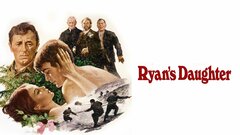
Ryan's DaughterStream

Pasternak
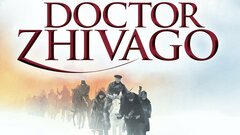
Doctor ZhivagoStream
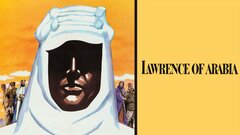
Lawrence of ArabiaStream
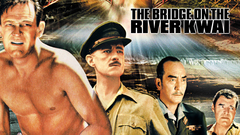
The Bridge on the River KwaiStream

Summertime
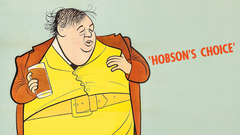
Hobson's ChoiceStream

Hobson's ChoiceStream

Hobson's ChoiceStream

Breaking the Sound Barrier

Breaking the Sound Barrier

Strange Case of Madeleine
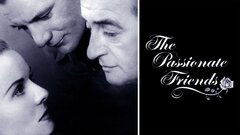
The Passionate FriendsStream

The Passionate FriendsStream

Oliver TwistStream

Oliver TwistStream
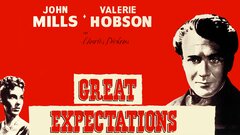
Great ExpectationsStream

Great ExpectationsStream

Brief EncounterStream

Brief EncounterStream
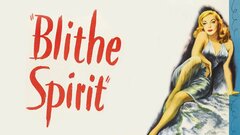
Blithe SpiritStream

Blithe SpiritStream
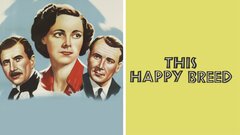
This Happy BreedStream

This Happy BreedStream

In Which We Serve

In Which We Serve

French Without Tears

Spies of the Air

PygmalionStream

Escape Me Never

Money for Speed

























































